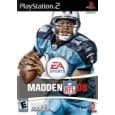A couple of weeks ago when I was at the Broadcast Educators festival in Las Vegas, I was struck by the words people use to talk about new media. Words like: inundated, overwhelmed, deluged, complex, confusing, and potentially dangerous. It struck me that many of us are trapped in our own brains and not able to think about how this all looks from the brains of kids and teenagers, who use words like cool, fast, and awesome. This is an awkward situation if the people who are feeling inundated and worried are designing media and curricula for the people who think fast is awesome and who are reveling in the new worlds and ways of being that new technologies have made possible. Personally, I like to think of us all as interacting in an information environment, where different media technologies are among many facets.
I was, therefore, incredibly excited (even discounted for my normal enthusiasm for cool media stuff) to listen to speakers at the Joan Cooney Ganz Center’s Digital Media conference “Logging into the Playground: How Digital Media are Shaping Children’s Learning.”
I was “attending” via webcast from the west coast, and it was also broadcast via Second Life (although I was unable to see the presentation on the SL screen, it was cool to sit with a group of avatars in the open-air auditorium who were all there for the same purpose.) Due to the time difference east coast to west coast and my desire to sleep in past 5:30 am, I caught the afternoon panels.
There were excellent discussions about what skills need to be taught, i.e. what are the 21st century skills that will enable our kids to have success in the new careers that will emerge rather than preparing them for old careers that will be replaced and outmoded. According to Bernie Trilling, Senior Director of Oracle’s Think.com and ThinkQuest programs, these are:
- critical thinking and problem solving
- creativity and innovation
- collaboration and teamwork
- cross-cultural understanding
- communication and media fluency
- computing and IT fluency
- career and learning self-reliance
 A challenge was issued to the audience – can you identify the ‘learning places’ in the video game John Madden Football? If you don’t know, you need to. (And if you needed an excuse to buy a game console, this is it!)
A challenge was issued to the audience – can you identify the ‘learning places’ in the video game John Madden Football? If you don’t know, you need to. (And if you needed an excuse to buy a game console, this is it!)
For me, the person right on the mark was Connie Yowell from the MacArthur Foundation, who made the following points:
- The commercial industry is driving learning far beyond educational textbook so must redefine the relationship between public and private because they are the innovators and setting the standard.
- Will Right (developer of The Sims) and other American game developers like him are the pedagogical theorists of the new century because they have figured out how to harness emotions and attentions in learning environments
- The “adults” and the paradigms we bring to this work need radical change–a new paradigm for thinking about new media:
- We need to understand where learning is happening in new media
- We need to not just ask questions but figure out what questions to ask
- The reading and learning patterns are fundamentally different with new media and we can’t measure what is happening with old tools
- Education needs to think past a model of consumption to one of participation, collaboration, and networked learning and this is not going to happen if you keep the old model with teacher up in front of 25 kids
- Best of Show: School is just one node on a kids information and learning network.
This should be chiseled on the foreheads of all policy-makers, educators, and educational material developers. The implications are that schools do not bear the entire burden for educating our children and also that we should not expect them to. We need to make what is happening in school in keeping with what is happening in kids lives and ALSO what is happening around the world. It really doesn’t matter what used to work or what didn’t work; it’s time to put our egos and ideological fixations aside. What really matters is how we educate kids IN this new world FOR this new world.
 Dr. Pamela Rutledge is available to reporters for comments on the psychological and social impact of media and technology on individuals, society, organizations and brands.
Dr. Pamela Rutledge is available to reporters for comments on the psychological and social impact of media and technology on individuals, society, organizations and brands.